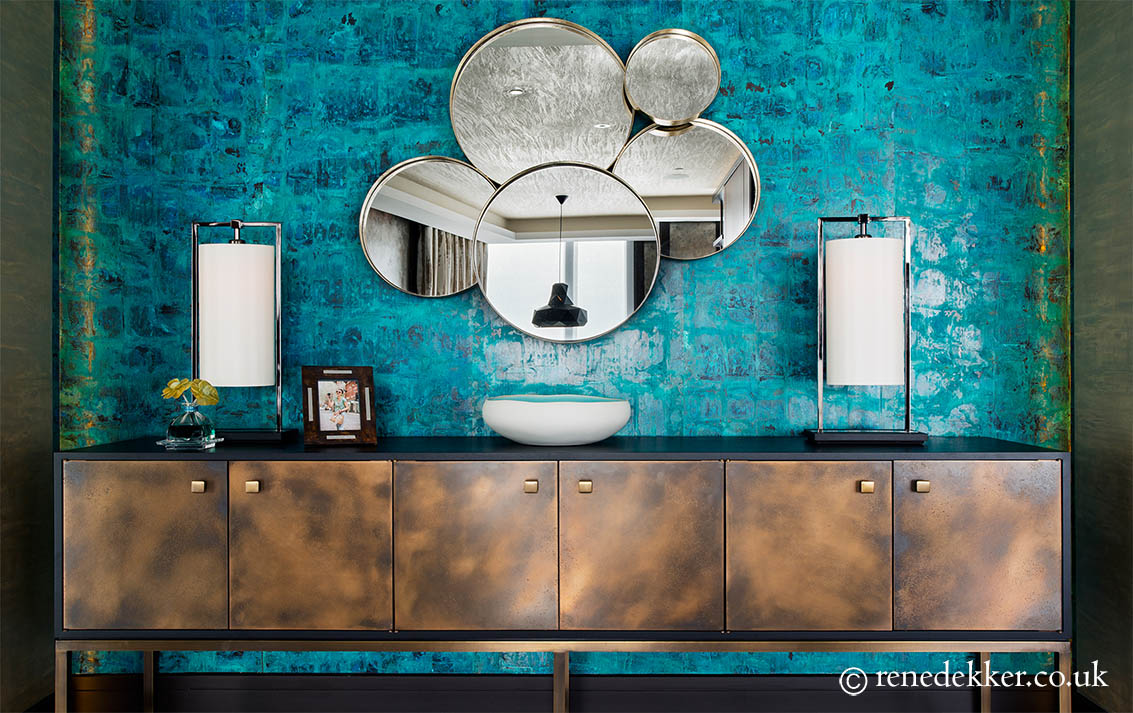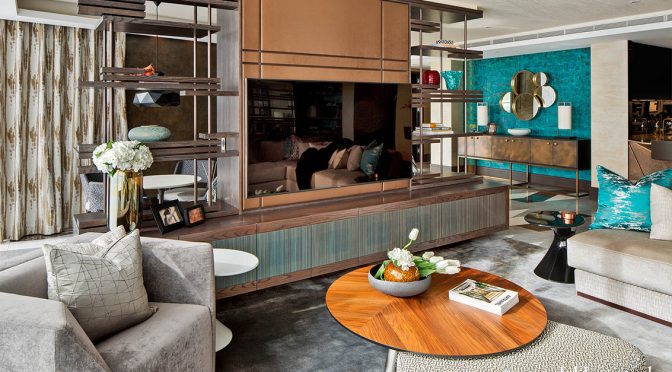Using metal in interior design has been a tradition dating back to medieval times, and there has been a flurry of trends ever since – silver at the turn of the last century, chrome in the '20s, Brutalist metalwork of the '70s, and gold and brass in the 80s. But never has metal been as versatile as it is today — appearing in furniture, lamps, accessories, but also wallpapers, fabrics and even flooring.
London interior designer René Dekker, has incorporated the use of copper in his stunning interior designs, and adores the warmth and subtlety of tone that it can convey within a scheme. It can bring glamorous accents or create striking centrepieces to transform modern interiors from stylish to stunningly elegant.
Because of its malleability and resistance to rust, copper has traditionally been seen as a quality, practical metal for piping and plumbing purposes. In addition, its ability to conduct heat has also meant the metal has, for many years, occupied a respectful place in the kitchen as the preferred choice for pots and pans. If that wasn't enough, it also has the ability to eliminate bacteria, viruses and fungi that settle on it, making it the perfect hygienic choice for surfaces such as door handles and light switches. Plus it's 100% recyclable without loss of properties, making it the perfect choice for modern eco-designs.
As a versatile and practical metal, copper has been well respected, but today it's seen as much more than a purely functional material. So, despite what some might think, using copper in a room scheme doesn't mean you have to live in an urban loft apartment with exposed pipes, industrial lighting and products made from plumber's copper from a building merchant. Although, should you wish, there are some uber funky metal furniture designs you can use to complement the look.

Unlike other metals such as silver and chrome, which are considered “white”, copper and its costlier cousin, gold, both have chromatic appeal thanks to their colour palette. Ranging from deep red, to warm orange it progresses further up the rainbow to a sunny yellow and even green. As a result, copper has slowly been creeping away from its functional co-star life to take a more prominent position as a leading role on the interior design stage and it's London interior designers like René Dekker that are keenly interested in creating copper interior design schemes.
Upgrades in luxury kitchens have seen a promotion to chic appliances designed to be left on show on work surfaces, while in the bathroom there has been a significant shift from discreet practical usage to impressive focal points such as freestanding bath, or stunning sinks to suit the most cutting edge of environments.
In the sitting room and bedroom, copper furniture or lighting with stunning polished surfaces, or manipulated into elaborate forms that challenge the beauty of sculpture now take pride of place. Smaller items include mirrors and picture frames, little copper pots and drawer knobs, all of which add just a hint of warmth and spark one's curiosity.

Softer decorative incarnations range from metallic accents printed in wallpaper and fabrics to create an impressive focal point or, on a smaller scale, just a glimpse of glamour through scatter cushions — either way, interior copper tones in a room provide a rich, warming sheen.
But its versatility doesn't stop there — copper is now also making an appearance in floors and walls with cunningly embossed metal tiles, raw-cast concrete flooring inland with copper patterns, and even flecks of colour in carpeting.
In its basic state, copper is one of the few metals than can provide a totally different texture and mood depending on the way it has been handled. There's the shiny, polished surface, but give it a beaten, hammered or burnished treatment and it changes instantly, creating a totally different feel and, more importantly, mood.
Unlike many other minerals, copper excels at being outside with its unique verdigris properties, and is streets ahead of its competitors when it comes to planters, pots and decorative items. Plus there's plenty of it – at the rate that copper is currently mined and consumed, there's about five million years' worth still on Earth, so maybe it's not surprising that they used 179,000 pounds of it to create the Statue of Liberty.
